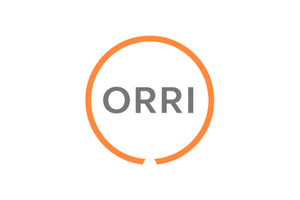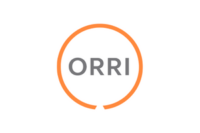
Care Providers
Case Study: Orri
 Orri is an innovative eating disorders service offering intensive day treatment clinic. Orri is now three years old and recently received an ‘Outstanding’ rating from the CQC, specifically naming Radar Healthcare as a contributing factor to their success.
Orri is an innovative eating disorders service offering intensive day treatment clinic. Orri is now three years old and recently received an ‘Outstanding’ rating from the CQC, specifically naming Radar Healthcare as a contributing factor to their success.
Orri offers services both in person and online and practices a multi-disciplinary model where clients have a team around them made up of therapists, dietitians, psychotherapists, and nurses amongst others. Orri’s intensive model allows them to take clients who might otherwise be hospitalised or are newly out of hospital and treat them without the stress of disrupting clients’ routines. Orri works with over 60 clients at any one time and has over 65 employees all actively using Radar Healthcare.
Everything under one roof
Lucy Inmonger, COO of Orri, elected to introduce the whole suite of Radar Healthcare in one go. “We use the whole suite – all our clinical compliance, incident reporting, event reporting. We do all our audits through Radar Healthcare, and we also use workforce compliance so we can make sure we’re on top of our mandatory training. Changes in policies and SOPs also go through Radar Healthcare so we know everyone has been notified.”
Although they are still relatively new, Orri has a few systems in use, including an electronic medical record system, a bespoke tool to manage their clinical operations, and a HR database – although Radar Healthcare is now being utilised for more training and workforce compliance.
The beauty of Radar Healthcare is that it connects these tools through an API so Orri can be sure to know that their patient data is accurate and up to date. Through COVID-19, Orri developed their online facilities as their physical services closed. Upon reopening, Orri had to review its systems to allow for the integration of both in person and online treatment.
Saving time – and paperwork
Digital adoption was a key company objective – “Our main objective was to remove paper from almost every part of the business. Things that were paper-heavy required a lot of auditing for compliance which is not the best use of clinicians’ time.”
Other goals linked to saving time and ensuring clinical time was spent adding value. “Another objective was to reduce clinical hours spent on admin and to reduce time spent on gathering data instead of reviewing and digesting the information.”
Prior to Radar Healthcare, Orri used a large Excel spreadsheet that required constant checking and processes to ensure that it was fully updated. As they began to use Radar Healthcare, one of their early wins was creating workflows for compliance to ensure they were up to date and correct with health and safety, incident reporting and building regulations, as well as their clinical tasks.
In their evaluation of Orri, the Care Quality Commission mentioned Radar Healthcare as a factor that had contributed to their success.
"They were impressed with our systems. The CQC looks at audits, incidents, and complaints in a lot of detail and having these items in a place where you can explain what happened, how it was resolved, what were the issues and what were the learnings is invaluable."

Tailoring software to your taste
As a clinic that relied on paper forms and documentation, it was important for Lucy and her team to be able to recreate that level of detail and care in Radar Healthcare. With our Form Builder, Lucy was able to do just that.
"We’ve been able to tailor our forms to exactly what we needed. We built it from scratch, used our own workflows and had a fully bespoke setup. We generally can’t fit our model into an off-the-shelf system, which is why Radar Healthcare was helpful because we were able to build it to what we needed it to do."

On-hand support, before, during and after
The Projects team at Radar Healthcare helped Orri during the implementation through training sessions, regular meetings, and step-by-step processes. Lucy praised Amy Everiss and Alicia Ahmed in particular: “it’s not a complicated system but it’s a complicated concept. The training, the step-by-step process and the team’s responsiveness was excellent. I’ve recorded every training session Amy [Everiss, Senior Project Manager, Radar Healthcare] has ever gone through with me so I can go back to it.”
Engaging your team in using a new product can be difficult, especially when you have been so used to using other methods. Lucy explains that doing a ‘stepped approach’ helps to maintain people’s interest in using the software. “Like anything, people sometimes find using new software frustrating, but Radar Healthcare provides a much easier way to digest information.”
Like the sound of our software?
Maintaining outstanding work
We at Radar Healthcare are thrilled to hear that a specialist service like Orri is thriving through their use of our software. Lucy said, “We don’t follow a “standard” clinical model; a lot of healthcare companies have inpatients that are there all the time, or outpatients who are meeting one person at one time. Whereas we have group therapy, then they’re meeting with their psychiatrist, then they’re having dietetic therapy so we need bespoke systems.”
Because of the nature of our service, there is risk associated with our client group, so we report absolutely everything. That complexity becomes harder to manage at scale, so Radar Healthcare was essential. It has ticked a lot of boxes and filled those criteria, and we feel comfortable that we have our eyes on all the relevant parts of the organisation. It has really transformed the business in terms of oversight of everything we do.

CQC Inspection Report: Reporting incidents and learning from when things go wrong
“The service managed client safety incidents well. Staff recognised incidents and reported them appropriately on the electronic system. When things went wrong, staff apologised and gave clients honest information and suitable support. Managers investigated incidents appropriately and ensured that feedback from investigations and learning from incidents were discussed in the weekly staff meetings as a standing agenda item.
Managers used an electronic system called ‘Radar Healthcare’ to send summaries of lessons learned and staff were expected to complete reflective questions. Managers also shared a monthly lessons learned newsletter. Managers assessed staff competencies and any additional training needs by organising monthly emergency simulation scenarios. They acted out an unannounced emergency scenario and assessed how staff responded. This reduced the chance of errors occurring when a real emergency incident happened.
A recent scenario identified that staff needed additional training in first aid. Managers completed a monthly audit of incident investigation, complaints and whether the duty of candour had been met. In October 2021 staff had achieved 95% compliance with this audit. Staff understood the duty of candour. They were open and transparent and gave clients and families a full explanation if and when things went wrong.” – Orri’s CQC Inspection report 2022.
"Managers used systems to collect data from the service. Managers had access to a secure electronic database called ‘Radar Healthcare’ which gave them oversight of incidents, complaints, staff sickness, policies, audits and safeguarding referrals. It was easy to pull data from the system and create reports. For example, on length of treatment."







